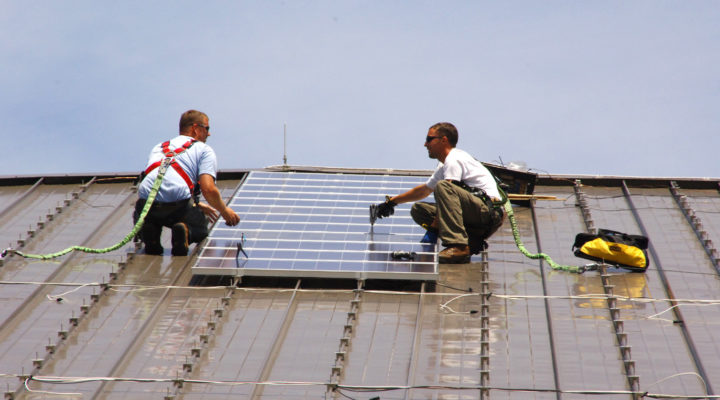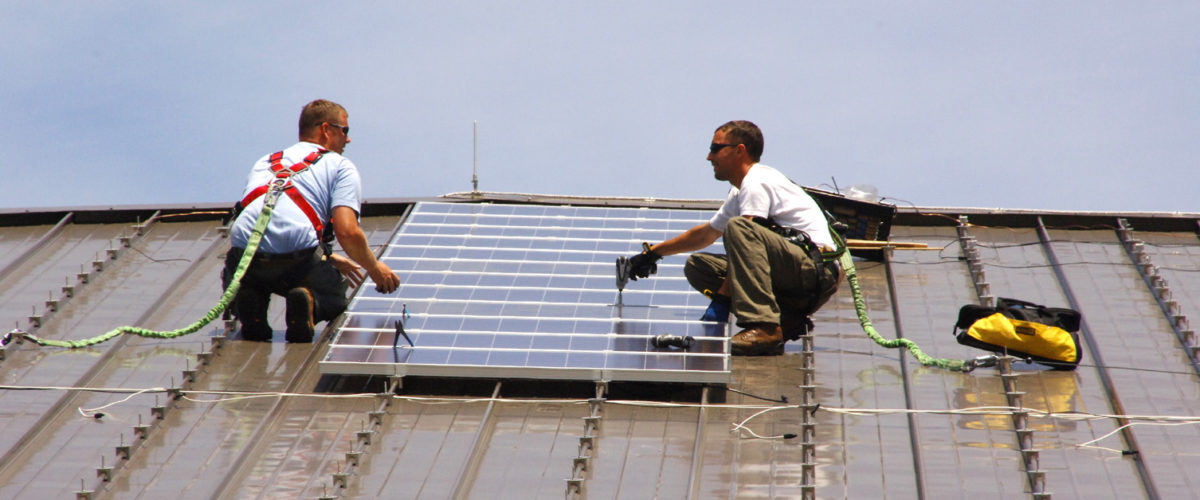A national group that helps religious groups embrace solar power is seeing increased interest due in part to federal policies detrimental to the environment.
“Solar and interest in solar is growing exponentially as it becomes more affordable and with all these alarming, new directions the (Trump) administration wants to go,” said Susan Stephenson, executive director of Interfaith Power and Light, which has chapters in 38 states.
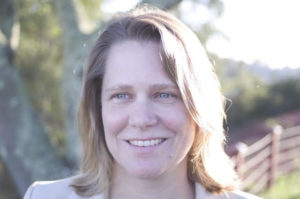
Susan Stephenson
Another motivator for many is theology that values creation, she said.
The organization is aware of about 1,000 congregations around the country that have switched to solar power as part of that response, Stephenson said.
Organizations already on board with solar or just beginning the process span the spectrum of faith, she said.
“We have a lot of Protestants, different denominations,” Stephenson said. “We are pretty strong with Episcopalians, United Church of Christ, Methodists and we have a good number of Jewish groups and Unitarians,” she said.
And there are a growing number of Baptists, including Lakeshore Avenue Baptist Church in Oakland, California.
The American Baptist and Alliance of Baptists congregation is in the midst of a fundraiser to help finance its solar panel installation early next year.
Spirituality drove its decision to “go solar,” Pastor Jim Hopkins said.
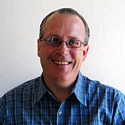
Jim Hopkins
“It’s no secret that we need to be good stewards of the environment and protectors of creation, and to do everything we can to mitigate against environmental crisis,” he said. “So, solar panels are an expression of our commitment to creation care.”
It was decided to lease the solar technology, he said.
Inspiration came from a nearby synagogue that recently switched to solar, he said. The California chapter of Interfaith Power and Light, of which the church is a member, helped navigate the many options and regulatory red-tape issues surrounding solar power.
Hopkins said the project may be completed by early 2019.
Concerns about ecological health are rising and especially so in California thanks to devastating wildfires.
“There is such a heaviness in the air and people carry that heaviness in their hearts and outlooks,” he said.
“The environment is one those concerns that should unite interfaith efforts.”
In some cases, the decision to install solar faces more than administrative and financial challenges. For First Parish in Bedford, a Unitarian Universalist church in Massachusetts, the resistance was legal.
Its desire to put solar panels on its current meetinghouse, built in 1818, raised historical preservation concerns that generated two years of court challenges.
“There is a balance to be sought here between historic preservation and modernity and being relevant and walking one’s walk,” said John Gibbons, the senior minister at First Parish, a congregation established in 1729.
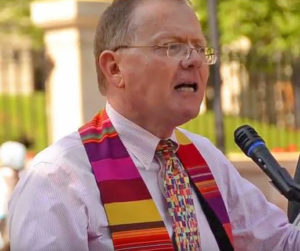
John Gibbons
Last summer, a judge ruled that the congregation be issued a certificate of appropriateness for its proposed solar project. An October town meeting voted to amend town bylaws allowing the technology without Historic District Commission approval. The church is now waiting for the town to officially drop its lawsuit, Gibbons said.
The parish’s inspiration throughout the process was a “respect for the interdependent web of all existence” and a calling “to live in harmony with the rhythms of nature,” Gibbons said.
Active efforts to live that ethic began some five years ago. They included creating a stipend for a climate organizer, replacing the HVAC system and “blowing insulation” throughout the 200-year-old meetinghouse.
“That’s one big, drafty building,” Gibbons said.
The congregation has been involved in external efforts promoting environmental preservation, as well. Those include protesting pipeline projects, for which Gibbons has been arrested twice.
The rooftop solar array, once installed, will move the parish further along in those efforts, he said.
“We want to honor the historicity of our building, but we also want to honor our principles,” Gibbons said.
There hasn’t been legal opposition to the solar project at Lakeshore Avenue Baptist Church in Oakland. But there have been questions.
“There is always a host of competing concerns,” Hopkins said. Those include putting more of the congregation’s resources into combating homelessness or supporting the sanctuary movement.
“But we also have voices that say unless we take care of our environment, everything else is imperiled, also.”

